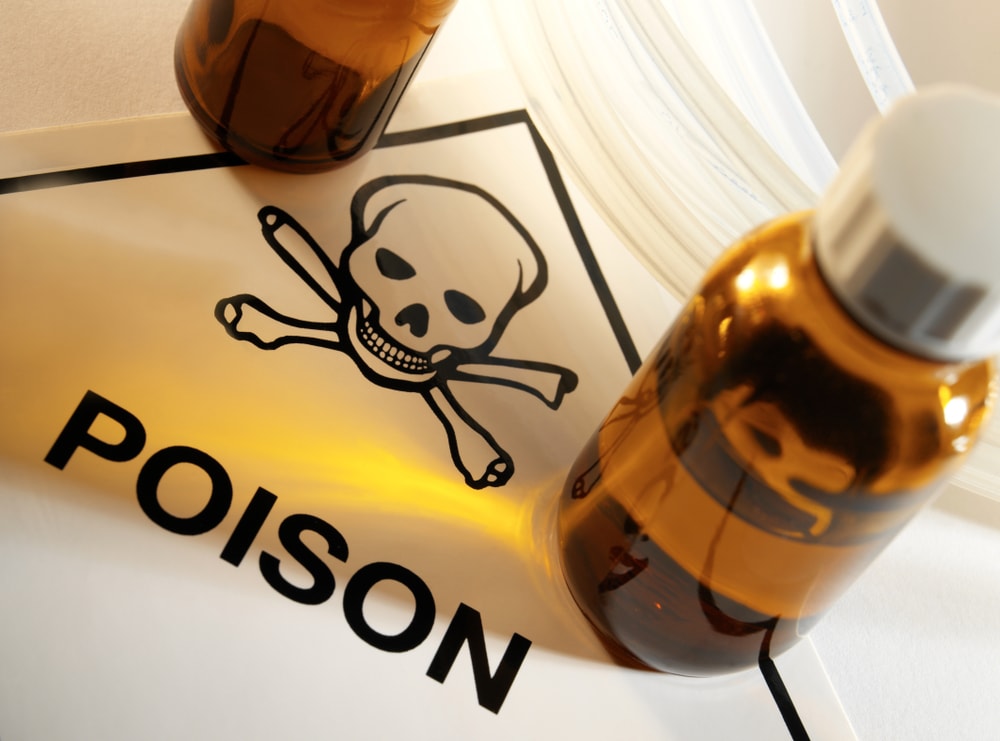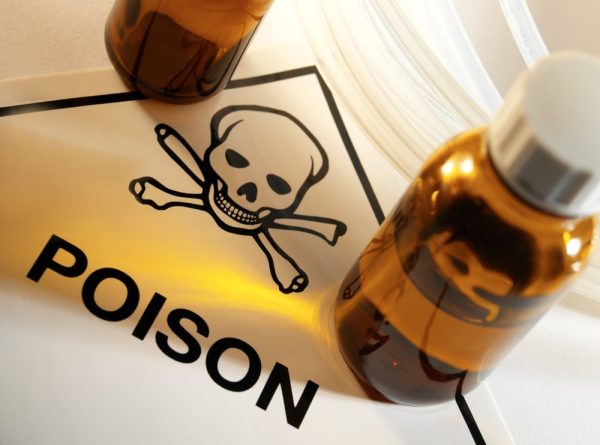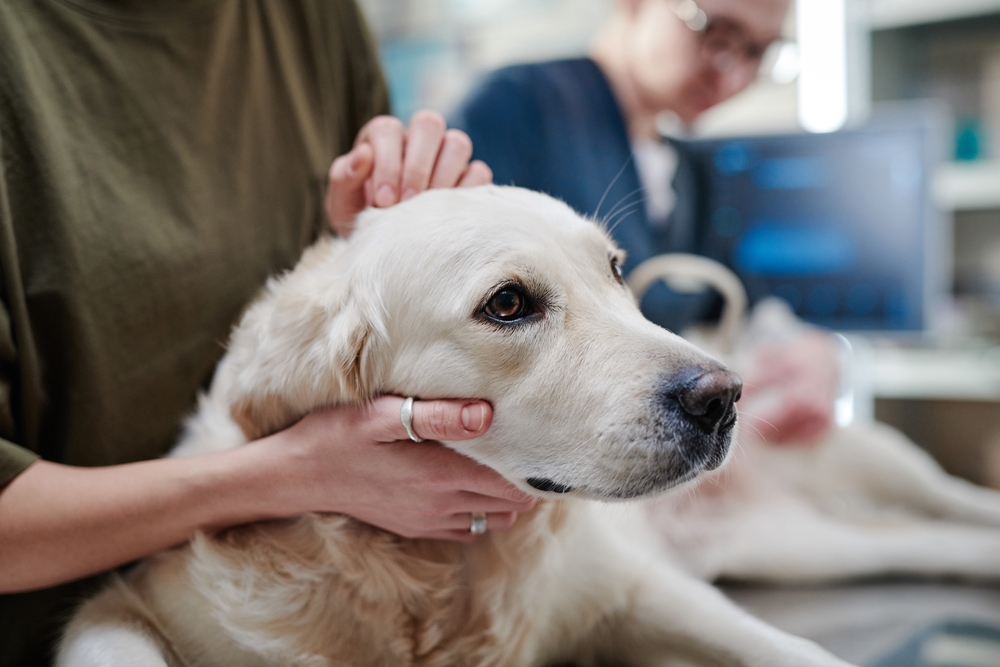Click to Skip Ahead
Pet Poison Prevention Awareness Month occurs every March as part of the broader Poison Prevention Month, which is a national effort to raise awareness about the dangers of an avoidable threat. Pets depend on us to make responsible decisions for their well-being, making this a valuable time to reflect on how we view their safety. Let’s explore Pet Poison Prevention Awareness Month and how you can put its core lessons to work for your animals.

What Is Pet Poison Prevention Awareness Month?
National Poison Prevention Month began in 1961, while the third week became National Poison Prevention Week the following year. Piggybacking off the theme, animal enthusiasts declared March Pet Poison Prevention Awareness Month, addressing a broader concern of accidental poisoning for everybody in the household.
Thousands of animal poisoning cases occur every year in the United States. The ASPCA’s Animal Poison Control Center (APCC) alone handled over 400,000 cases in 2021. Incidents jumped 22% from the prior year, pushing the call center to a total of over 4 million cases over its 45-year history, proving the value of awareness to be at an all-time high.
Pet Poison Prevention Awareness Month allows vets, experts, and advocates a chance to coordinate campaigns to reduce these health emergencies. Indoors and outside, poisoning can occur in several ways that owners often fail to consider. By taking advantage of active conversations during Pet Poison Prevention Awareness Month, you can take a comprehensive approach to safeguarding your pet from harm.
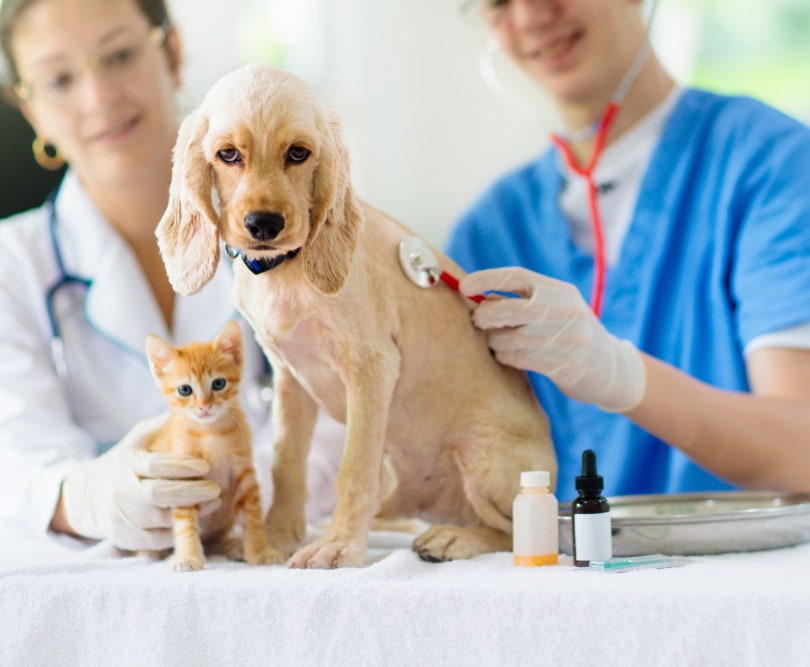
Most Common Causes of Pet Poisoning
From furnace gas leaks in the house to accidental rat bait ingestion, there are seemingly 1,001 ways pet poisoning can occur during the day. While most of us respect the risks of certain substances, like serving chocolate or grapes to dogs, the top causes of poisoning might surprise you.
Pet poisoning usually occurs from ingesting human OTC or prescription medications. Pets lapping up a dropped tablet or chewing through a pill bottle are frequent occurrences, and they usually don’t need much to feel adverse effects.
Though not as hazardous as meds, food products are still among the top causes of poisoning cases.
- Chocolate
- Food containing Xylitol
- Allium family members, such as onions and garlic
- Grapes and raisins
- Nuts
After COVID, cases of pet poisoning from cleaning products became a growing concern. Concurrently, more stay-at-home workers took up gardening, presenting even more hazards to curious pets. Alongside the potentially toxic plant varieties inside and outside the home, pets face the threat of poisonous pesticides, herbicides, and fertilizers that often come with them.
Signs of Pet Poisoning
Signs of pet poisoning will vary based on the species, breed, and type and quantity of the toxin they ingested or inhaled. Poisons often impact the GI tract or nervous system initially, but depending on the substance, they could affect any area of the body.
- GI upset, including vomiting, nausea, or diarrhea
- Lethargy
- Internal bleeding
- Seizures and muscle spasms
- Short or labored breathing
- Change in body temperature
- Caustic burns
- Discolored mucous membranes around the gums, tongue, or eyes
- Behavioral changes, including depression, hyperactivity, or lack of coordination
Effects can appear at various times, with some being almost instant and temporary while others may be chronic. Many toxins can be fatal, so any sign of possible poisoning should prompt an immediate call to your vet or poison control hotline.
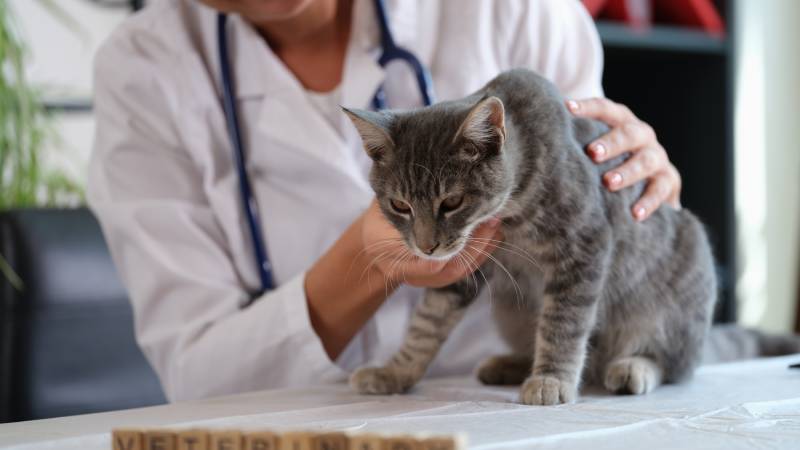

How to Prepare for Possible Poisoning
Diagnosing poisoning is often challenging for pet owners, as the typical physical indicators could also signify multiple other illnesses. Should you notice behavioral changes or a collection of signs that make you suspect poisoning, contact your vet immediately.
Call an emergency vet or a pet poison control hotline if you cannot reach your regular vet. Helpful resources include the ASPCA Animal Poison Control Center (consultation fee may apply) and the Pet Poison HelpLine ($85 incident fee applies).
How to Handle a Case of Pet Poisoning
In an emergency, contact your vet or poison helpline immediately. Pull together as much valuable information and tools as possible will make it easier for the expert to offer direction.
- Separate your pet from the poisonous substance, and keep them relaxed.
- Obtain a sample or the container of the poison if possible.
- Rinse your pet’s hair and skin of any poison residue.
- Make a mental list of poisoning signs your pet is displaying and take note of the situation in which it happened.
- Be prepared to discuss your dog’s medical history and current medications.
- Follow your vet’s directions before inducing vomiting or administering treatments.
If you keep items like activated charcoal or hydrogen peroxide in a dog or cat first aid kit, your vet may be able to guide you through treatment at home. When you bring your pet in for treatment, methods like fluid infusions, diuretic drugs, or gastric lavages (pumping the stomach) may come into play to flush the system.
If you are far from a vet clinic and need urgent vet advice and guidance on the best course of action you can chat with a vet online.
PangoVet. It’s an online service where you can <b>talk to a vet online</b> and get the personalized advice you need for your pet — all at an affordable price!
</p>
<div class="su-button-center"><a href=https://www.dogster.com/lifestyle/"https://pangovet.com/?utm_source=dogster&utm_medium=article&utm_campaign=dog_preventative_wellness%22 class="su-button su-button-style-default" style="color:#FFFFFF;background-color:#FF6600;border-color:#cc5200;border-radius:9px;-moz-border-radius:9px;-webkit-border-radius:9px" target="_blank" rel="nofollow"><span style="color:#FFFFFF;padding:0px 24px;font-size:18px;line-height:36px;border-color:#ff944d;border-radius:9px;-moz-border-radius:9px;-webkit-border-radius:9px;text-shadow:none;-moz-text-shadow:none;-webkit-text-shadow:none"> Click to Speak With a Vet</span></a></div></div></div>"}" data-sheets-userformat="{"2":513,"3":{"1":0},"12":0}"> If you need to speak with a vet but can’t get to one, head over to PangoVet. It’s an online service where you can talk to a vet online and get the personalized advice you need for your pet — all at an affordable price!

Top Tips to Prevent Pet Poisoning
Keeping toxic substances away from your pets will help you avoid nearly any chance of poisoning. But with all that could potentially harm your pets, how can you be sure you’re adequately covering your bases?
It can be tough to say your pet is 100% safe from every threat, but following these helpful tips will give you the best chance for success:
- Keep cleaning supplies, rodenticides, weed killers, and other chemicals on high shelves behind a cabinet door.
- Store medication bottles in an inaccessible medicine cabinet.
- Remove your pet from the room while using cleaning chemicals.
- Clean leftover food scraps from tables and counters immediately.
- Protect food in tamper-proof packaging and store it out of reach.
- Limit access to areas where you hold hazardous substances, like bathrooms and basements.
- Take your trash out every night, and block your pet from getting into it.
- Consider which houseplants you want to share a common space with your pet to ensure they won’t be toxic.
- Maintain landscaping and trim back vegetative overgrowth in the yard.
- Keep your dog on the leash while walking the neighborhood or hiking.
- Dial in critical training concepts, such as recall, and commands like “leave it.”
Carbon Monoxide Safety
Hazardous gas leaks can also cause poisoning, even if your dog doesn’t get into a dangerous substance. Smart carbon monoxide detectors may be a safe investment if you keep your pets inside while you and the family are gone for the day. With instant alerts, you can respond and protect your animals.
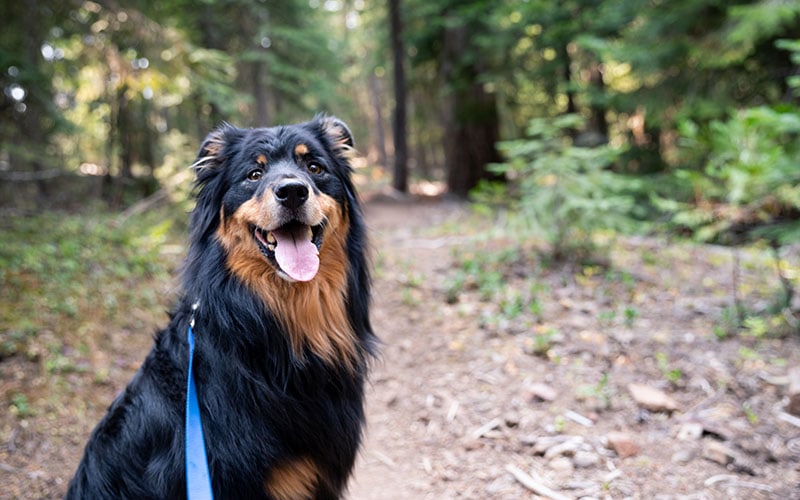

Conclusion
One wrong bite can change your pet’s life in an instant. Pet Poison Prevention Awareness Month highlights a critical part of responsible ownership and the importance of effective safety strategies to protect your pets from hazardous substances. Take the opportunity this March to spread awareness, promote education, and discover how you can expand your knowledge of poison safety to ensure a long, happy, and fulfilling life for your pets.
Featured Image Credit: Steve Allen, Shutterstock

